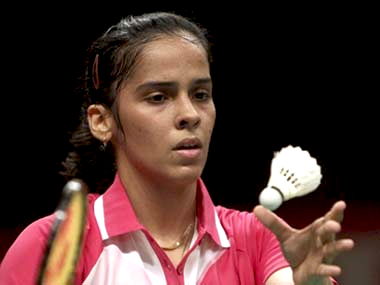Odense, Oct 15: Leading Indian shuttlers Saina Nehwal, Kidambi Srikanth and P.V. Sindhu entered the second round but Parupalli Kashyap crashed out in the first round of the $650,000 Denmark Open Superseries Premier here on Wednesday.

World No.1 Saina took an hour and nine minutes to set up the next encounter against world No.18 Minatsu Mitani of Japan, who took only 25 minutes to dispose Thai Porntip Buranaprasertsuk 21-10, 21-4.
Olympic bronze medallist Saina holds a 5-3 advantage in career meetings against the Japanese. But the Japanese has won all her match in the last four encounter against the 25-year-old Hyderabadi.
Sindhu beat Indonesia's Maria Febe Kusumastuti 21-13, 21-11 in just 33 minutes to enter the second round.
On the other hand, Kashyap lost 14-21, 15-21 to former World No.1 Lee Chong Wei of Malaysia. The former World No.1 took just 47 minutes to win the match.
The doubles pair of Jwala Gutta and Ashwini Ponnappa suffered a 19-21, 18-21 loss against Japanese seventh seed Reika Kakiiwa and Miyuki Maeda.
Fifth seed Srikanth moved past compatriot and World No.26 Ajay Jayaram 21-10, 21-14 in 32 minutes.
In the doubles, world No.20 pair of Manu Atri and B. Sumeeth Reddy battled past Englishmen Marcus Ellis and Chris Langridge 24-22, 21-13 in in 49 minutes.






Comments
Add new comment